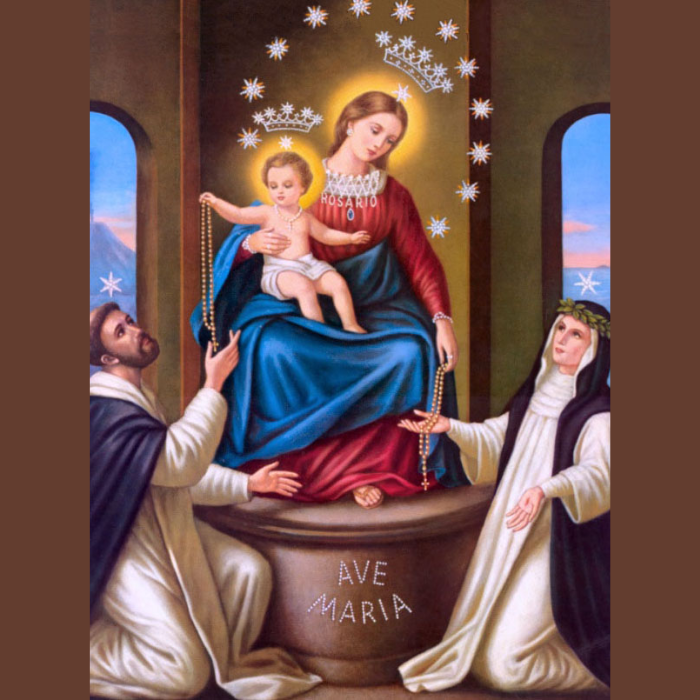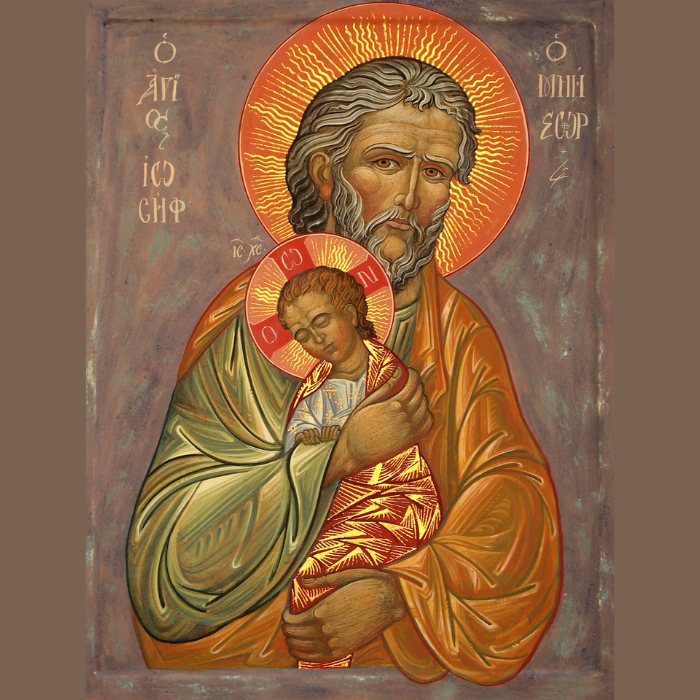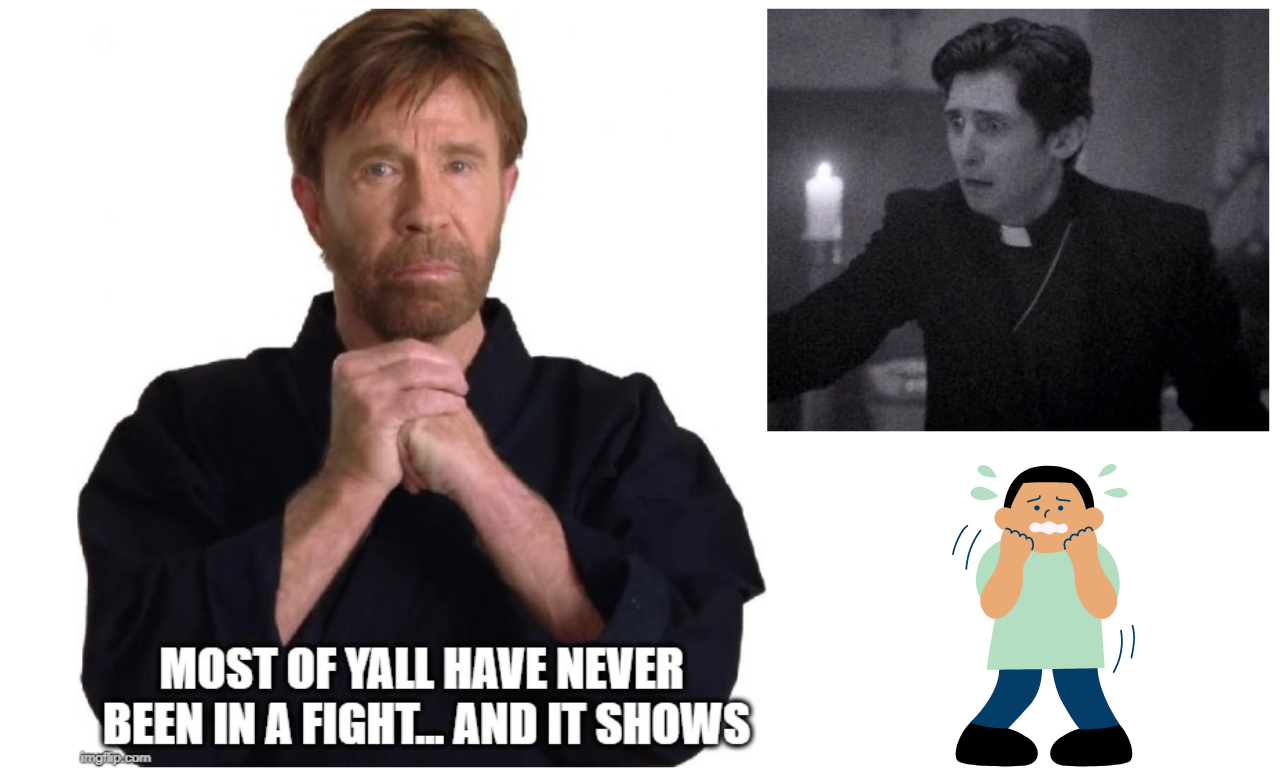An alternative headline might be WHEN do traditional Catholics fight?
Common responses range from “never, head over into the corner and cry,” all the way to “why haven’t you strapped bombs to your chest and kamikazed them yet?”
As usual, there may be an Aristotelian middle ground somewhere between these ridiculous extremes.
When we recap the antichurch’s recent cancellations of loyal Catholic clergy, we find the villains attempting to ruin figures like Bishop Joseph Strickland and Cardinal Raymond Burke.
The former was unceremoniously removed from office (for opposing antichurch sodomy), whereas the latter lost some of his property (for being an enemy of the antipope). I won’t include Michael Voris here (also fired recently), since it appears he brought his fate upon himself, and a departure from public view might be his best therapy.
Here’s the critical question, however . . .
Should persecuted prelates, and other sidelined trad Catholics, fight back a little harder amid these oppressions?
Fight or Passively Resist?

I’m inclined to believe observant Catholics should fight more, but we must also consider Our Lord’s willing submission to His Passion, which obviously did not involve any direct retaliation. He would win by defeating death’s sting in a much different (and more successful) way. Jesus gives the clear example that martyrdom is the best response to the world’s tyranny.
However, He does not insist it’s the ONLY way we respond to secular evil. How do we know that, though?
Well, if we must accept immediate martyrdom, without EVER fighting, then it would imply that all historical instances of Catholic resistance have been immoral. Clearly, that isn’t true.
There are plenty of examples in the Old Testament, and throughout Church history of good-willed men responding to pagan or gentile persecution with violent opposition.
- Gideon and 300 soldiers defeated the much more powerful Midianites
- The Maccabean revolt against the Seleucid Empire.
- The 1571 Battle of Lepanto, where the Holy League, with Our Lady’s miraculous intercession, thwarted Islamic invaders.
- The 1683 Battle of Vienna, where the Holy League once again demolished the ornery Muzzies.
- David sling-shotting and beheading the enormous Goliath
- The Queen Judith, out-foxing and beheading the wicked general Holofernes.
- Jael, the heroic tent dweller, who tricked yet another horrible general (Sisera), ending his miserable life by driving a huge nail into his temple.
- You can find some of these inspiring examples (and more) in the glorious Book of Judges, which isn’t for the faint of heart, and scares the pants off mealy-mouthed modernists.
Were all these biblical and Church heroes nothing more than immoral rebels? Of course, they were not.
However, there’s something that presupposes every one of these violent responses: they came at God’s behest, and only after man had reached the pinnacle of desperation.
So, even as we grow impatient and wonder “when will all the folks with guns finally shoot the bad guys,” there’s still a matter of awaiting the proper time. Before you ask, neither I nor any charismatic person can announce when the time has come. It is always contingent upon the divine will, nothing less.
What does this look like in practical terms for Catholics as we approach the end times?
When Do We Fight? When Mary Leads

The Blessed Virgin Mary enjoys a mandate from God, to be the one who calls the shots, and we’d better side with her if we expect to succeed with fighting. This applies to all interior and exterior spiritual combat.
What proof do we have of this?
Aside from the continuous exhortations from popes and saints (especially St. Louis de Montfort), to seek her assistance, history has witnessed Mary win several battles for her spiritual children. That isn’t limited to the spectacular victories like Lepanto and Vienna, either. Mary, Our Lady of Prompt Succor, even helped Andew Jackson win the Battle of New Orleans, effectively cementing the end of the War of 1812. Where there is victory for anyone of good will, the Blessed Virgin must be nearby. Jackson, for his part, was at least grateful of the Ursuline nuns devoted to Mary in New Orleans.
It’s possible, however, that we aren’t yet ready to win our era’s decisive battle against Satan (as much as we desire its end).
We’ve been told, in the END, her Immaculate Heart will triumph. Perhaps we must wait until this “end,” whenever that may be, before receiving the grace to enact a full-fledged fight. Also, you might notice something else about many of those examples I mentioned (Gideon, David, Judith, the Holy League, etc.).
They did not have the grace to fight until they were desperate, caught in a corner, and totally reliant on God to save them. We never win our conflicts with our own preemptive assaults, strategies, or “five-year plans.” No, we fight once God intends it, and only after we’ve reached sufficient humiliation and desperation. Can you think of many exceptions to this rule throughout Catholic/Hebrew history (if so, comment below)?
Even the Psalmist attests to this reality:
“They surrounded me like bees, and they burned like fire among thorns: and in the name of the Lord I was revenged on them. Being pushed I was overturned that I might fall: but the Lord supported me.” – Psalm 117:12-13.
When the bees, demons, or secular-humanist villains swarm against us, we beseech God’s support even more. In the 21st century, this involves awaiting the commands and signal graces that come from our most loving 12-Star General, the Blessed Virgin Mary.
True Heroes Aren’t Too Big to Beg for Help Before Fighting
“Ah, I’ll neither sit around and wait like you cowards, nor will I humble myself to beg for help. I’ll have you know that I’m a proud American.”
Well, first, it looks like your “proud America” now identifies itself as communist (among other horrible things). Perhaps you’d find better pride elsewhere.
More importantly, we should recall the numerous examples of those who humbled themselves, and begged for a resolution to their dire struggles. At the risk of making too many lists in this article, here are even further examples:
- St. Alexander prostrated himself before the Blessed Sacrament, imploring God to rid the Church of Arius.
- St. Pius V rallied the Holy League fighters to pray the Rosary and beg for the most improbable victory at the Battle of Lepanto.
- The prophet Daniel, Sts. Peter and Paul, and many other holy saints spent time in prison not knowing whether they’d survive, abandoning themselves entirely to the divine will.
By the way, there’s nothing to say we won’t face martyrdom and combat simultaneously at some point. Most of the worst persecutions have required both. We see that in 2nd Maccabees with the macabre martyrdom of the Jewish mother and her sons, but also the eventual military triumph of Judas Maccabeus and his forces.
Then, we should always remember St. Joseph, who would have made a stellar combatant, if God willed it, but instead answered a far greater calling. His role was to be among the most patient and trusting of God’s followers, ever to walk the earth. Sure, St. Joseph may not have had to beg for anything. However, this most venerable protector of Jesus and Mary had to exercise patience and dependence on God much more than a willingness to “duke it out” with enemies.

Then there’s still another warning from holy scripture regarding the perils of trying to enact change (prematurely) without divine support.
It is vain for you to rise before light, rise ye after you have sitten, you that eat the bread of sorrow. -Psalm 126:2
Also, don’t be one of those folks who carries on and on about guns all the time, but then hides in the woods (with all the prepping). This is a contradiction disguised as “prudent strategy.” If we could’ve “shot and destroyed” all the fags, communists, eugenicists, and freemasons, wouldn’t we have done so by now? Why would we need to hide so much while they conquer all that was once ours?
Conclusion: Don’t Make Excuses for Pusillanimity, Though

Finally, let us return to what I mentioned at the beginning of this article. Is it time for prelates (Bishop Strickland, Cardinal Burke, etc.) to lead an assault against the antipapacy?
The answer is almost undoubtedly: YES. As much as we might dislike most of them, it is the College of Cardinals who has the responsibility to adjudicate and nullify antipapacies and halt this antichurch corruption. Let’s not forget Our Lord’s admonition that to whomsoever much is given, of him much shall be required.
I don’t intend this as a radical critique of Cardinal Burke or Bishop Strickland, but rather an encouragement to step out of the clerical comfort zone. That was, as you’ll remember, the gist of my last blog post. I can’t judge how good of a job these men are doing, but I know that if we’re averse to all confrontation, then we risk suffering an excruciating personal judgment.
Therefore, let us not presume to “sit on our hands” like quietists. At a minimum, everyone should possess a sincere eagerness to fight and achieve an end to the antichurch and diabolical disorientation.
Finally, since this Sunday marks the beginning of Advent, don’t neglect to finalize your various penances and devotions to help prepare for Our Lord’s coming. It’s not a deeply penitential season (like Lent) but there are many ways to make it more joyous and fruitful. This could involve . . .
- Pious reading for at least an hour each day. If you lack the time, then you could LISTEN to St. Alphonsus Liguori’s Advent Meditations during a commute or at lunch.
- Abstain from comforts and pleasures (meat, alcohol, cigars, sweet foods, etc.)
- Take cold showers (something especially miserable this time of year)
- Pray at least the Joyous Mysteries, but preferably all 15 decades of the Rosary, every day.
- Today is November 30th, beginning the St. Andrew Novena (lasting until Christmas Eve).
- Read the Gospel of Luke, at least the first two chapters, detailing the Annunciation and Nativity narratives.
Bonus Topic
Here’s a quick bonus item for your consideration.
Has anyone else noticed that we seem to get a lot of new videos and articles on topics like:
- Hyperpapalism & Ultramontanism
- Limitations to Papal Authority
- The Definition of Ecclesia Supplet
I wonder what all these have in common, and why they’ve arrived so frequently in such a short period. Hmm . . .
I leave you to ponder that, dear reader. At any rate, it’s time to cease our ignorance of the massive herd of elephants proverbially hogging every inch of the room. Stop ignoring the antipapacy, or else you’ll remain stuck performing no small volume of mental gymnastics to explain the “Francis pontificate.”


1 Comment